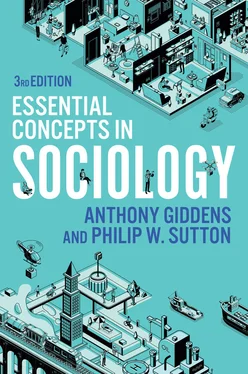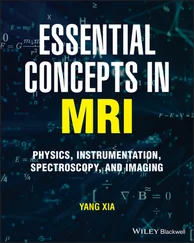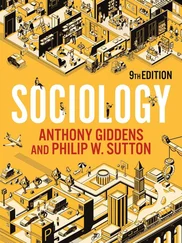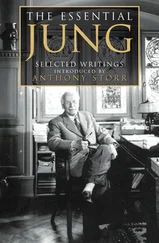Meaning and Interpretation
The period of modernity is said to follow from European feudalism and is an umbrella for all of the distinctive aspects of post-feudal societies. These include industrialization, capitalism, urbanization and urbanismas a way of life, secularization, the establishment and extension of democracy, the application of science to production methods, and a broad movement towards equality in all spheres of life. Modernity also instituted an increase in rational thinking and action characterized by an unemotional ‘matter of fact’ attitude, which contrasted sharply with the previous emotional and religious orientations to the world. Max Weber described this process as the gradual ‘disenchantment of the world’, spreading across the globe by an expanding, legal-rational form of capitalism.
As a social formation, modernity has been spectacularly successful in exploding the limits to the production of material goods, generating vast wealth for the relatively rich countries and bringing about more equality in many areas of life. During the twentieth century, many sociologists theorized that modernity represented a societal model that all nations would aspire to or be forced into eventually. This generic thesis came to be known as modernization theory, popularized by Walt Rostow (1961). Rostow argued that modernization was a process moving through several stages as societies ‘caught up’ with the early modernizers and their economies began to grow. From a traditional, agrarian or agricultural base, societies could modernize by shedding their longstanding traditional values and institutions and investing for future prosperity in infrastructural projects and new industries. From here, a continuous investment in advancing technology leads to higher levels of production and a drive towards mass consumption, which in turn creates a sustainable pattern of economic growth. Although countries such as Hong Kong, Taiwan, South Korea and Singapore have followed a pattern somewhat akin to this, Rostow’s model is seen today as too optimistic, as many countries, particularly in Africa, have not modernized in this way.
For some theorists, notably Zygmunt Bauman (1987), the key to understanding modernity lies in grasping its distinctive cultureand mentality, which can be compared to gardening. The modern mentality is one that privileges order over randomness. Hence, if society is likened to a wild garden, then wilderness and wild nature had to be tamed and domesticated, and the growing powerof nation statesto do the gardening provided the means to achieve this. The gardening metaphor is not restricted to nation states, though, as the desire for order and orderliness became a normal aspect of people’s everyday modern lives.
Some sociologists argue that modernization theory fails to account for the persistence of gross inequalities in the global system and the apparent ‘failure’ of many developing economies to take off as predicted. In particular, recent postcolonial scholarship has argued forcefully that theories of modernity have failed to acknowledge the significance of colonialism (Bhambra 2007). Colonial expansion promoted economic development in the West but had severe consequences for the colonized countries, effectively stunting their development. Hence, the idea of endogenous economic development may be seen as, in essence, ideological rather than explanatory.
A second criticism of the concept of modernity is that it is overgeneralized. Critics see it as really just a post hoc description of some modern societies – but by no means all – which fails to offer any explanation of the causes of modernization. Because the concept incorporates several key social processes, it is too vague and is largely descriptive rather than analytical. It is not clear which of the constituent elements is the main driving force in the modernization process. Is capitalist economics the main causal factor or is it industrialization? What role is played by democratization? Where does urbanization fit in – is it a cause or a consequence?
Neo-Marxist critics also take issue with the idea that there is an inexorable logic to modernization that will propel the less developed societies into a period of strong economic growth and prosperity. Rather, at the global level, the relatively poor countries are kept in a permanent state of dependency by the relatively rich world; their resources are plundered by powerful transnational corporations that use their populations as a cheap source of labour. Hence, not only is the concept too vague, the modernization thesis as such is deeply flawed.
Following the emergence of postmodern theorizing of an end to modernity, there have been reassessments of the concept. Some sociologists argue that we are entering a period not of postmodernitybut of ‘late’ or ‘reflexive’ modernity (Giddens 1990). Rather than this sounding the death knell for modernity, it means revealing and facing up to its negative aspects, such as environmentaldamage, which make social life much less certain as both the previous faith in science as the way to truth and deference to authorities start to wane (Beck 2009). Jürgen Habermas (1983) argued that postmodern theorists gave up too early on what he saw as the ambitious project of modernity. Many of its essential features are only partially complete and need to be deepened rather than abandoned. There is much still to do in relation to ensuring meaningful democratic participation, equalizing life chances across the social classes, creating genuine genderequality, and so on. In sum, modernity is an unfinished project that deserves to be pursued, not allowed to wither away.
A more recent body of developing work is based on the notion of ‘multiple modernities’ – a critique of the illegitimate conflation of modernization with Westernization (Eisenstadt 2002). This idea counters the earlier assumption of a single, linear route to modernity and a standardized, uniform version based on Western societies. Empirical studies of modernity around the world suggest that this is wrong. In fact, there have been numerous diverse routes to modernity (Wagner 2012). Japanese modernity is markedly different from the American version, and it seems likely that the developing Chinese model will be different again. Some modernities, even that in the USA, have not become as secular as forecast but remain staunchly religious in character, while at the same time embracing industrialism and continuous technological development. Others, such as the Saudi Arabian version, are not only explicitly religious but also selective in relation to what they take from Western forms before adding their own unique aspects. The multiple modernities agenda seems likely to produce more realistic evaluations that may reinvigorate the concept into the future.
References and Further Reading
Bauman, Z. (1987) Legislators and Interpreters: On Modernity, Postmodernity and Intellectuals (Cambridge: Polity).
Beck, U. (2009) World at Risk (Cambridge: Polity).
Bhambra, G. (2007) Rethinking Modernity: Postcolonialism and the Sociological Imagination (Basingstoke: Palgrave Macmillan).
Eisenstadt, S. N. (2002) ‘Multiple Modernities’, in S. N. Eisenstadt (ed.), Multiple Modernities (New Brunswick, NJ: Transaction), pp. 1–30.
Giddens, A. (1990) The Consequences of Modernity (Cambridge: Polity).
Habermas, J. (1983) ‘Modernity – an Incomplete Project’, in H. Foster (ed.), The Anti-Aesthetic (Port Townsend, WA: Bay Press), pp. 3–15.
Читать дальше












